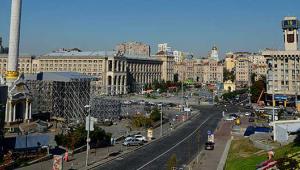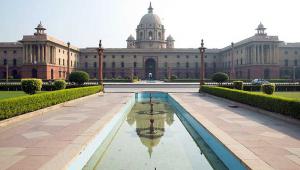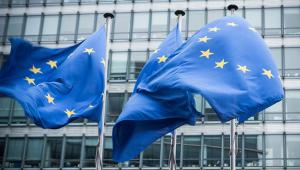With nearly all ballots counted in Sunday’s run-off vote, Volodymyr Zelenskiy, 41, had taken more than 73% of votes with incumbent Petro Poroshenko trailing on 24%.
A political novice catapulted to fame by his role starring in a popular television show about a teacher who becomes president after a video of him denouncing corruption goes viral, Zelenskiy is expected to take office next month.
Widespread corruption among public officials was a key campaign issue in the country of 42 million people.
Zelenskiy will need parliament to pass the promises he has made to change the country and reforms backed by the International Monetary Fund, Ukraine’s most important foreign backer, such as a bill to criminalise illegal enrichment by officials.
There are already signs that the new president will have work cut out.
Andriy Sadovyi, the leader of the second largest opposition group in parliament, the Samopomich party, announced just before the vote he was garnering support for a bill to weaken the presidency, which the party believes is too powerful.
Zelenskiy’s powers include appointing the head of the state security service, the head of the military, the general prosecutor, the central bank governor and the foreign and defence ministers.
But parliament must confirm each appointment and although Zelenskiy’s party could win the largest number of seats in parliamentary elections in October, polls suggest it is unlikely to win a majority.
This means that until those elections, the new president may struggle to make any significant changes and will need to form an alliance with at least one other party if he is to fulfil election pledges.
Samopomich also wants to strip Zelenskiy of the right to appoint the chairman of the National Energy and Utilities Regulatory Commission, who sets energy tariffs.
Zelenskiy’s election promise to pass a law to strip lawmakers of immunity from prosecution is also unpopular with his opponents.
Volodymyr Ariev, a lawmaker from Poroshenko’s faction, told Reuters it was unlikely that parliament would support such a move because lawmakers fear being prosecuted in political vendettas.














